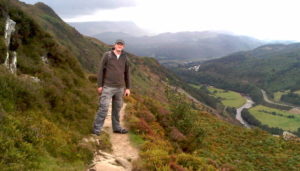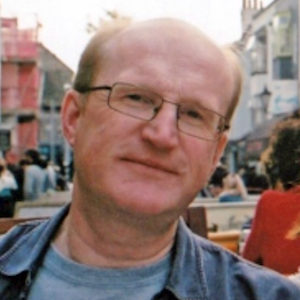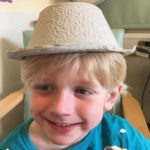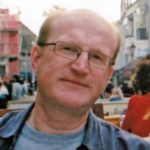Some of my earliest memories relate to McArdle disease, memories of having “tired” legs and asking my Dad if he would give me a piggyback.
As I grew older those same issues persisted… tired legs or random muscle cramps whilst walking up hills or climbing trees with friends. I tried to hide the symptoms from family and friends by stopping to tie my shoes laces, to look in a shop window or to admire a view. I just dealt with it most of the time and got on with life, but PE at school was grim. Cross country running and swimming were the worst because it seemed so unfair to be experiencing so much muscle pain whilst at the same time being told I was just lazy. I did enjoy some sports but just wasn’t “fit” enough to make the rugby or cricket team. I put it down to lack of fitness and the need to try harder. The family doctor said my symptoms were from growing pains and just being a bit lazy.
Trying not to compromise
As a young man I tried not to compromise due to what I now know to be McArdle disease but there were consequences to having a go at activities that were to prove beyond me – falling whilst climbing out of a pothole due to a weakening grip on a rope, being unable to climb back on an upturned catamaran whilst learning to sail, the inability to hold on whilst having a go at water skiing. As I got older the health consequences seemed to become more pronounced with aching kidneys and a “washed out” feeling that might last for a couple of days.
A pointless operation
In 2003 I visited my GP to discuss the symptoms which I described as an increased heart rate and muscle cramps whilst walking up gentle inclines or a couple of flights of stairs. I got a referral to a thoracic surgeon who decided that a depression in my chest wall (something I was born with) could affect lung capacity leading to exercise induced fatigue. In 2004 I had surgery to move my sternum, a fairly traumatic experience that left me with an 8-inch scar. The operation improved the appearance of my chest but the exercise induced fatigue was not reduced. In 2005 lung function tests suggested that my lung function was OK.
A lucky break

David walking in the mountains of Wales.
In 2006 I again wrote to my GP “If I continue to exert myself once the muscle cramp and increased heart rate has set in, two or three hours later my urine becomes dark red/brown.” But even with that description my diagnosis only came by good luck in 2008 at the age of 42. An alert geneticist looking at my medical history in relation to another matter asked if it had ever been suggested that I might have McArdle disease!
More active and fitter
In some ways middle age suits McArdle disease as I’m far less inclined to try any dangerous activities, but in other respects I’m as active as ever. I’ve climbed more mountains in my 40’s and 50’s than ever before. Since my diagnosis through the AGSD-UK walking events I have met other people from around the world who not only have McArdle disease but also have a zest for life. And that experience has certainly re-affirmed my view that the more active and fitter you are the less McArdle disease will impact on your life.
David features in the “Walking with McArdle’s” video.

































